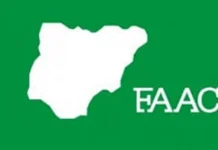A new research by SB Morgen (SBM) Intelligence revealed that around 36.96 percent of Nigerian businesses had to lay off employees or cut working hours to deal with the cash constraint caused by the currency devaluation strategy.
The research organization examined individuals and businesses across five of the country’s six geopolitical zones, excluding the north-east, in its report titled “Strapped: Impact of Cash Scarcity on Individuals and Businesses.”
According to the organization, the data in the paper is only as of April 6, 2023.
SBM Intelligence stated that the cash crunch made transportation and feeding more difficult, as transportation personnel were forced to use point of sale (PoS) terminals to facilitate payment for their passengers.
According to the research organization, majority of the business owners interviewed were negatively impacted by the cash scarcity, ranging from egg farmers who were stuck with their produce to rice sellers who had to lower their pricing to make sales.
76.09 percent of those polled claimed their business was significantly harmed, 17.39 percent said it was moderately impacted, and 6.52 percent said it was not affected at all, according to SBM Intelligence.
“Out of the 46 businesses interviewed, 36.96% had to lay off staff or reduce working hours to weather the cash shortage. About 41.30% did not have to make such adjustments,’ the report reads.
“However, when you remove those who said those issues did not apply to them, nearly half had to make staff cuts or reduce work hours. About 47.22% had to make staff or work-time changes, while 52.78% were resilient enough to stand the cash shortage without reducing staff strength or opening periods.”
According to SBM Intelligence, rather than force-feeding Nigerians with a policy, the Central Bank of Nigeria (CBN) should have pushed for a reduction in transaction failures and strengthened financial infrastructure integrity, while also taking the lead in engaging with regulators and private sector stakeholders to increase broadband penetration.
In response to the apex bank’s cashless strategy, the firm urged that its aims be linked with internet penetration, and incentives should be driven by the private sector rather than imposed by regulatory mandates.
“When transactions can be seamlessly done in rural and peri-urban areas, and mobile money operators can conveniently access enough cash to meet demand, rural residents will more readily take up digital channels,” the report further reads.
“Whether the consuming public continues to grow and maintain their bank deposits at levels seen pre-scarcity will represent the ultimate indication of how much institutional credibility the CBN retains.”













